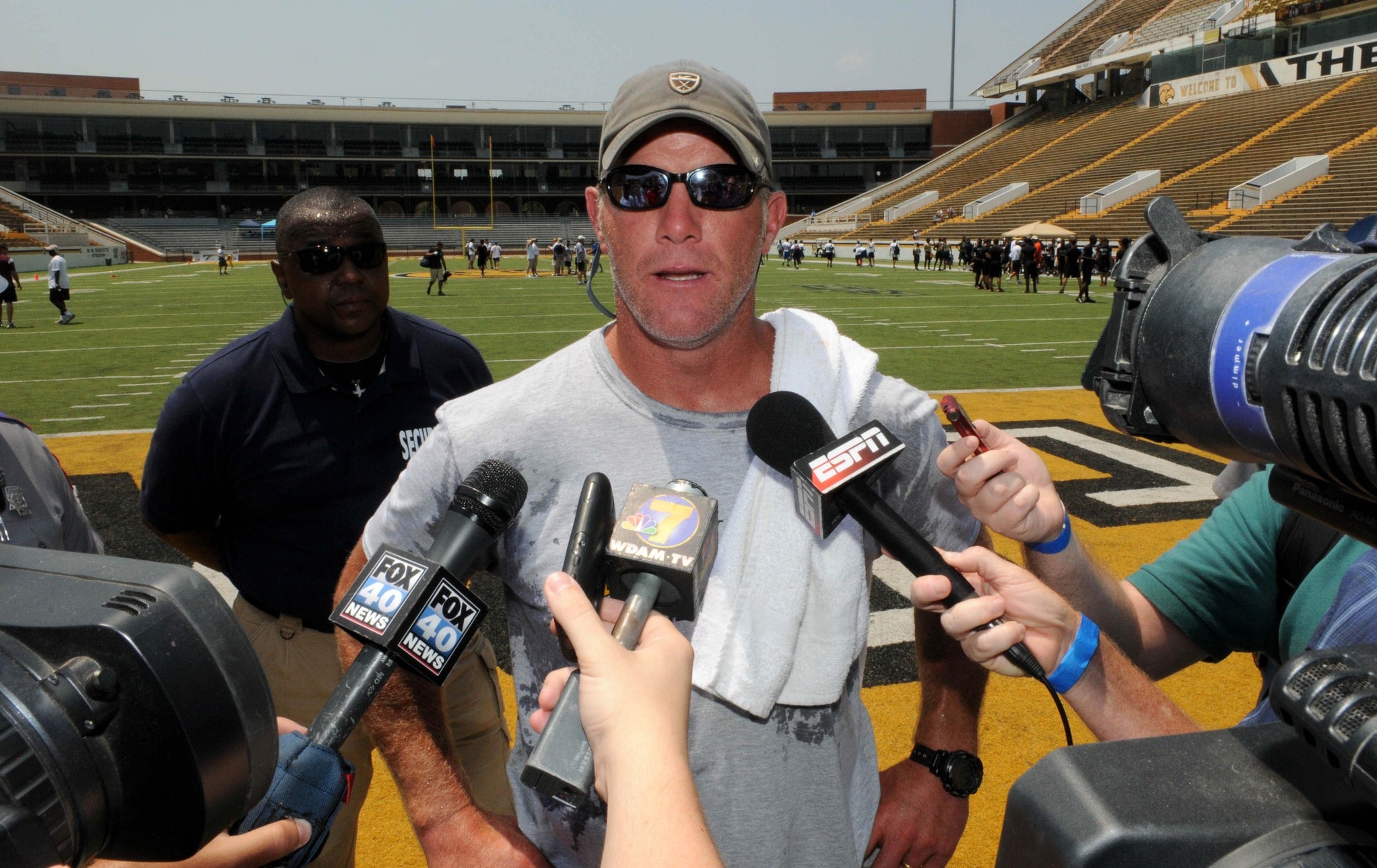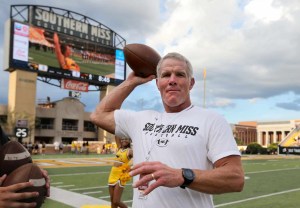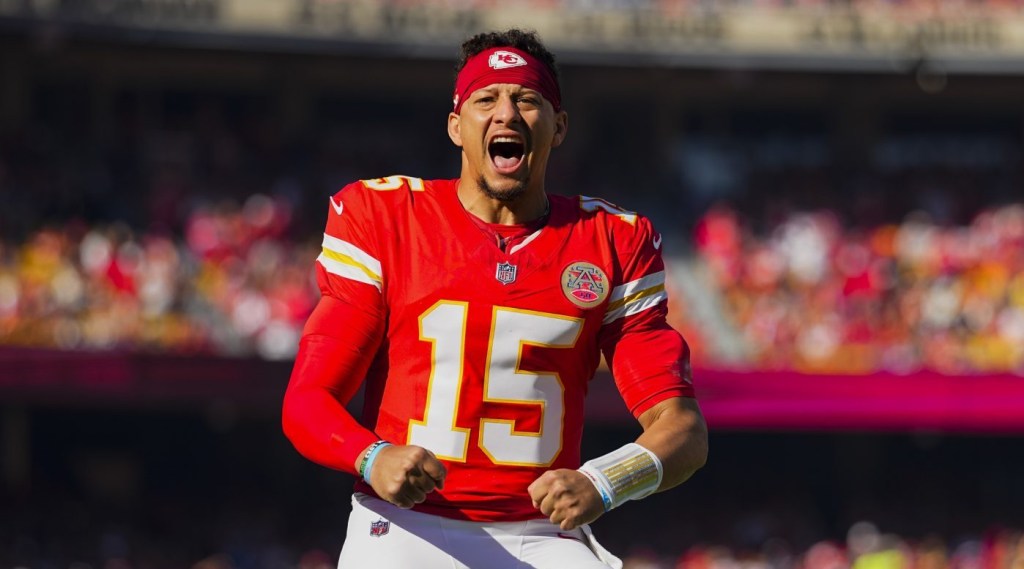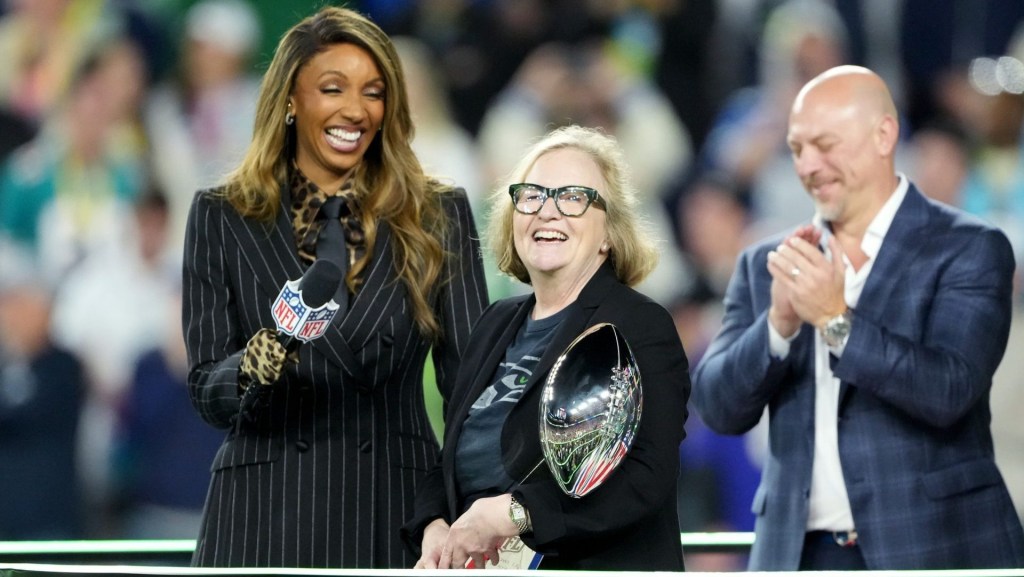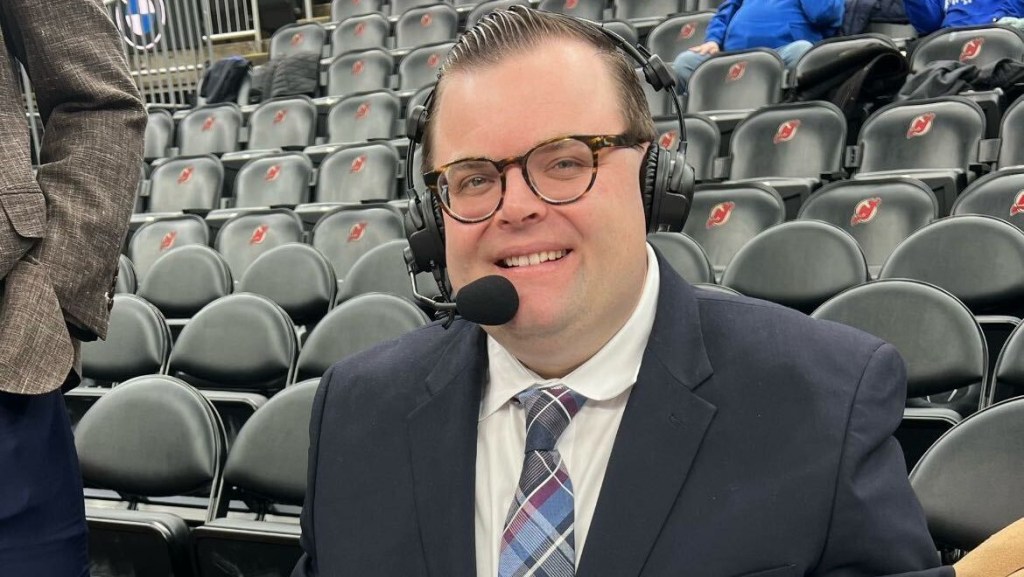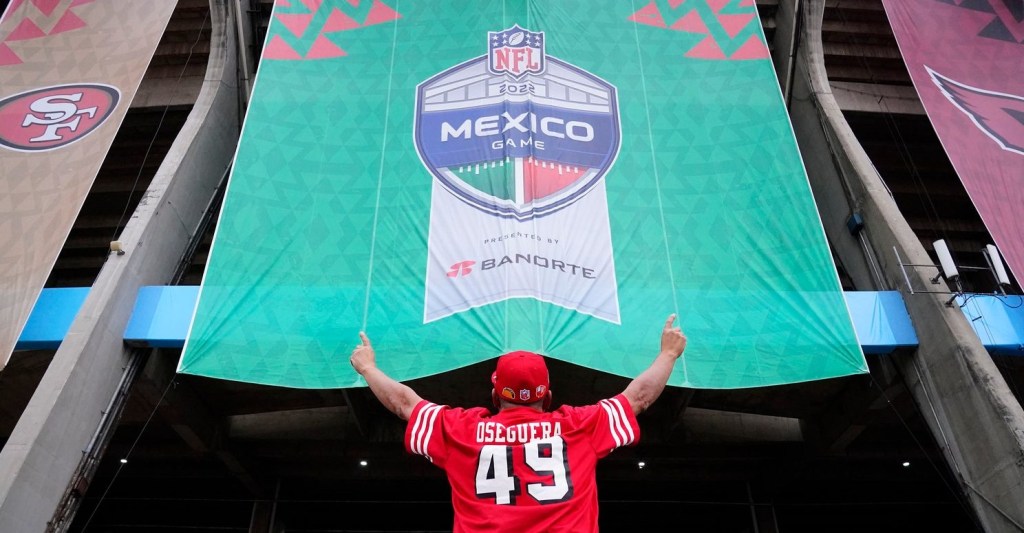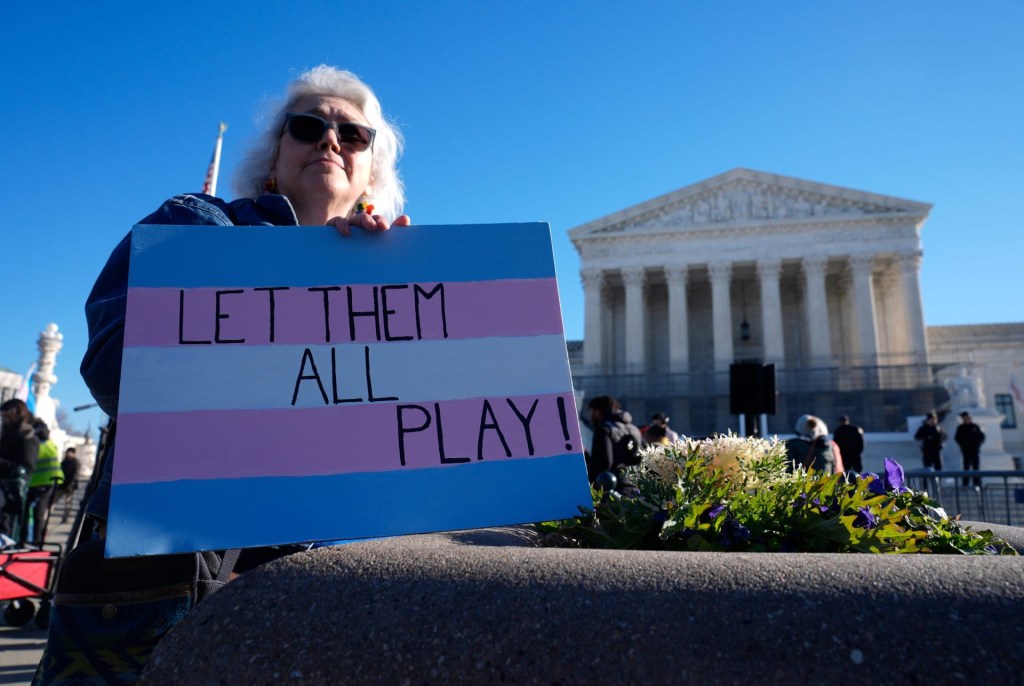A little-known cream touted by Hall of Fame quarterback Brett Favre has the attention of federal and state investigators as part of the wide-ranging probe into millions of misspent welfare funds in Mississippi, sources with knowledge of the matter told Front Office Sports.
Favre pushed for the creation and spearheaded funding efforts of PreVPro — even touting it at Super Bowl LIV on Fox News in February 2020.
“Prevacus is a company that is going to treat concussions, but we also have a pre-game cream, PreVPro, which is available now,” Favre said in the interview. “You apply it on the neck. It’s a cream. A concussion is inflammation of the brain, which is bad. It adds some relief for six hours. It’s pretty neat.”
Prevacus, the company behind a novel inhalable concussion treatment, received about $2.2 million of federal welfare funds, which the pharmaceutical company should have been barred from under rules for Temporary Assistance for Needy Families (TANF).
But as the first handful of payments were made for the development of that drug, one source told FOS that Favre became more enamored with the development of the cream after he came across a similar product called AloeMD.
Thousands of dollars of the TANF funds were diverted from Prevacus’ original concussion treatment to develop the PreVPro cream.
However, it was never actually produced in mass quantities to be sold to the public, in spite of multiple animal experiments that led to the deaths of at least a half-dozen dogs.
Investigators in recent weeks have delved more into Favre’s role in getting those TANF funds, which were funneled from Mississippi Department of Human Services (DHS) through a non-profit and, finally, to Prevacus.
And, more specifically, sources told FOS that investigators are combing over records related to Favre and the PreVPro cream. Like Favre’s other links to the more than $8 million in misspent funds, one source said text messages are again likely to play a major role in the probe.
“He knew [the Mississippi welfare agency] money was going toward developing the cream,” one source told FOS.
Funding the Cream
Zach and Nancy New, who were in charge of the nonprofit where the TANF money was funneled through, told officials at Prevacus that they wanted to invest in the cream, according to one source.
Prevacus founder Jake VanLandingham sent an email in February 2019 notifying the News — who pleaded guilty for their roles in the scandal and are cooperating with investigators — that 200,000 shares of Prevacus were issued, according to court records.
But Prevacus received the money from the News to develop the cream from the same accounts as the earlier payments.
Favre has denied that he knew the money was coming from welfare funds. A representative for Favre’s lawyer, Eric Herschmann, did not provide comment when reached about this story.
Beyond Prevacus, Favre also received $1.1 million to conduct speeches that he did not perform and $5 million for the construction of a volleyball center at the University of Southern Mississippi, his alma mater.
According to court records, Prevacus received the last payment from the welfare funds in October 2019. All of the more than $2 million was dispersed between January and October of that year.
By the time Favre did his Super Bowl interview — just four months after that final payment — Prevacus was effectively broke, partially for paying for testing for PreVPro (known as PresolMD at the time).
- In June 2019, the research company Aspire IRB approved a “Voluntary Safety Study” on 63 “youths ages 7-18,” according to a report obtained by FOS. The tests were carried out at NFL Flag Football Association camps in Arlington, Texas, Shreveport, Louisiana, and Dallas to “document and record adverse events.”
- Six beagles were used for one of the tests, according to a lab report obtained by FOS. Five of those dogs were euthanized to have their brains studied.
- Another test on dogs was carried out, according to a Prevacus/PreVPro prospectus. It wasn’t stated how many dogs were used in that study.
Mike Lewandowski, Prevacus’ chief science officer at the time, told FOS that the results of the second dog test were not released by the lab that carried it out because Prevacus “didn’t have the money” to pay for them. The results, however, are still accessible if funding is found.
Avoiding FDA Scrutiny
Human trials are typically the last step of a lengthy process laid out by the Food and Drug Administration when it comes to the development of a drug. But despite the drug-like effects described by Favre, the cream was labeled as a “nutraceutical” in the test of the youth flag football players.
Thanks to the Dietary Supplements Health and Education Act (DSHEA), nutraceuticals are considered dietary supplements under DSHEA, which means the FDA has little oversight and does not require pre-market approval.
FOS asked Aspire IRB for its guidelines for testing children, but received no response.
Favre, Favre Enterprises, Prevacus and PresolMD (the former name of PreVPro and the name of the LLC created for the cream) are all defendants in a lawsuit filed by Mississippi Department of Human Services as the agency seeks to claw back the funds.
On Tuesday, the agency served the four with a subpoena for information.
While Prevacus’ nasal-based concussion treatment was acquired by a company and still progressing toward a potential release, the state could have a hard time getting back any of the millions that wrongly went to Prevacus.
“I am not familiar with how the money was spent,” Lewandowski said. “I wasn’t the money guy.”
Editor’s note: The story was updated to more precisely describe Aspire IRB’s role in the human trial.
